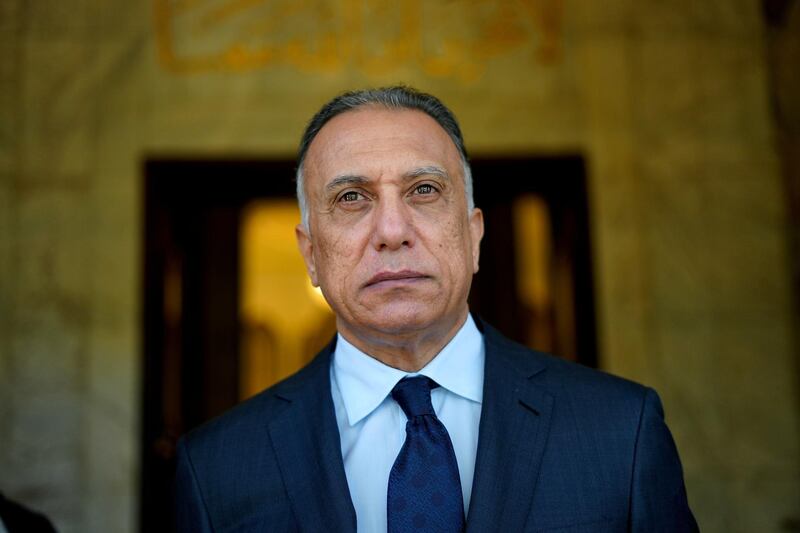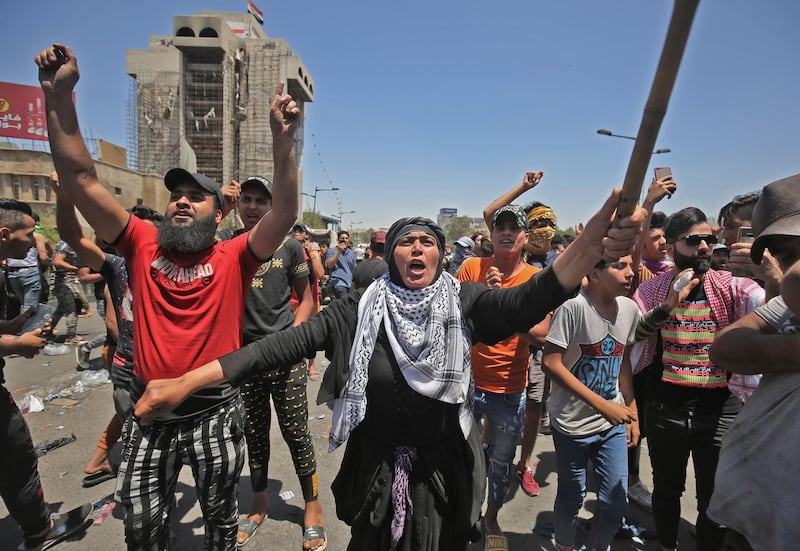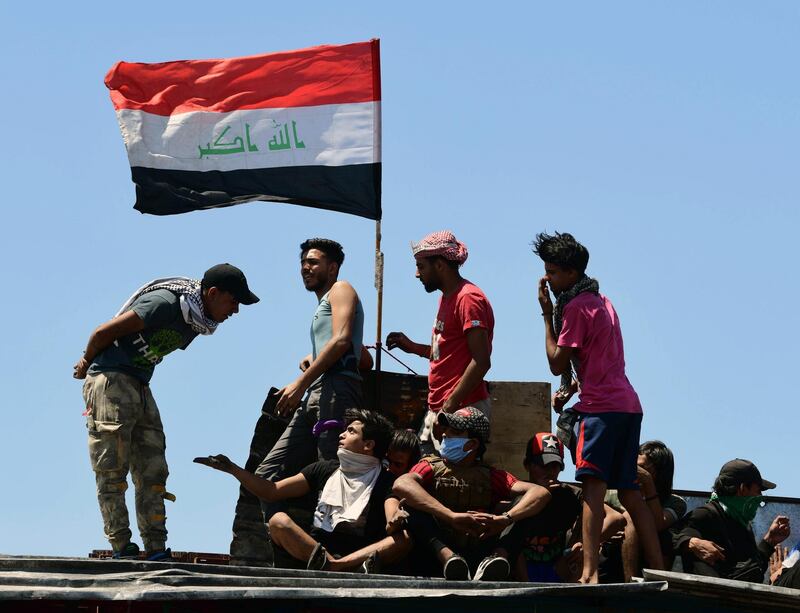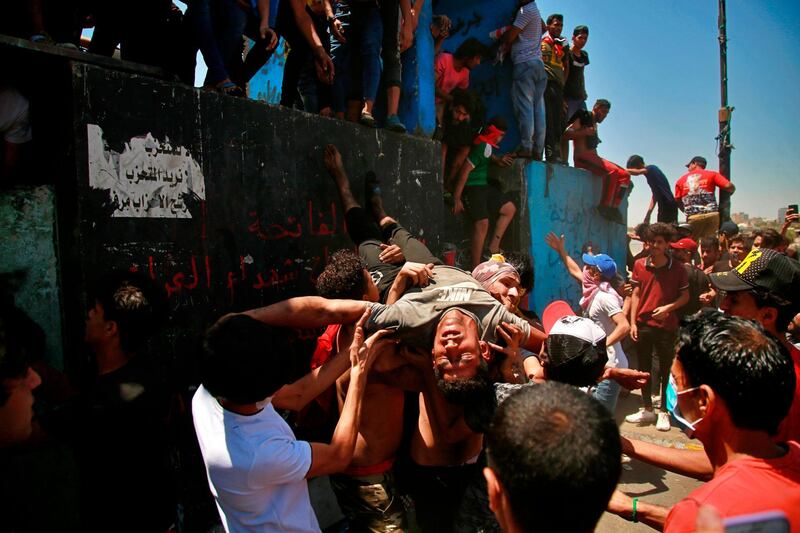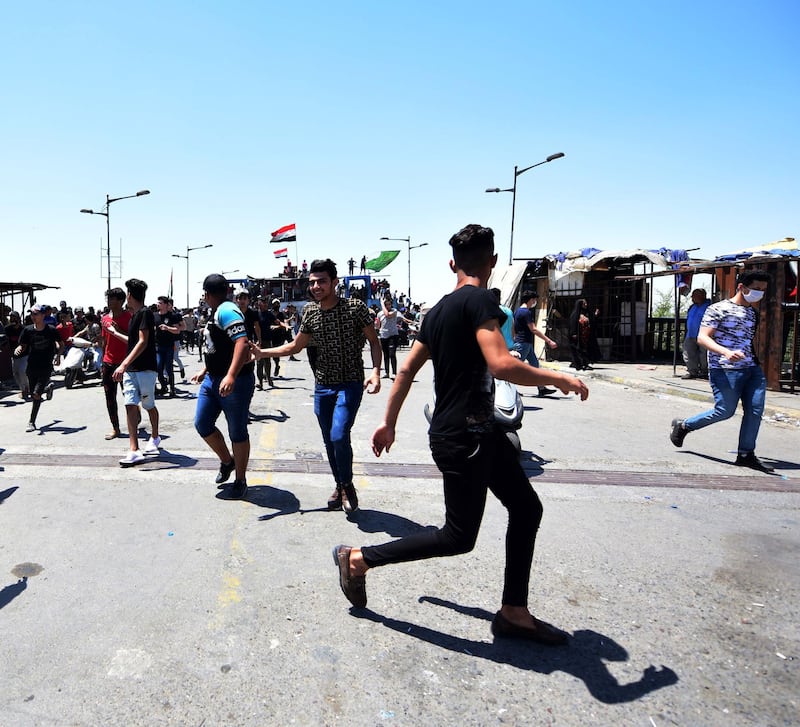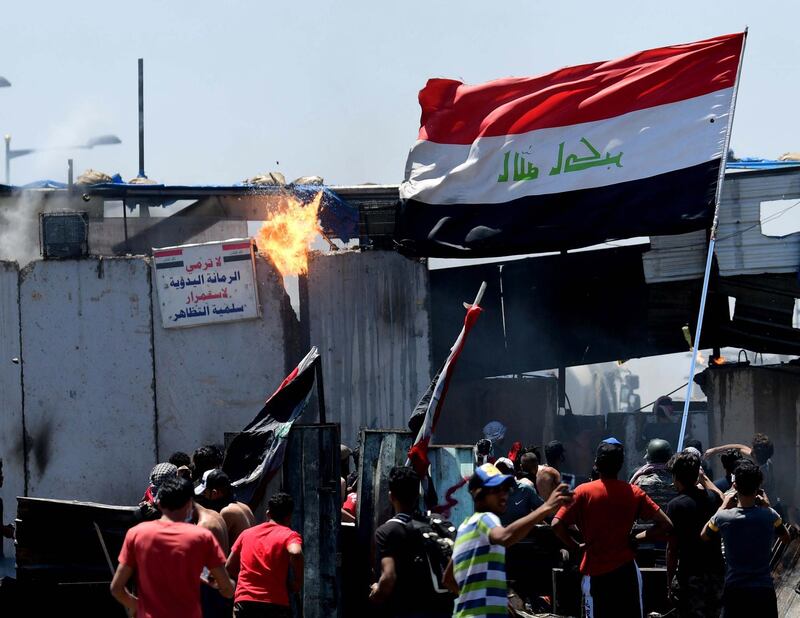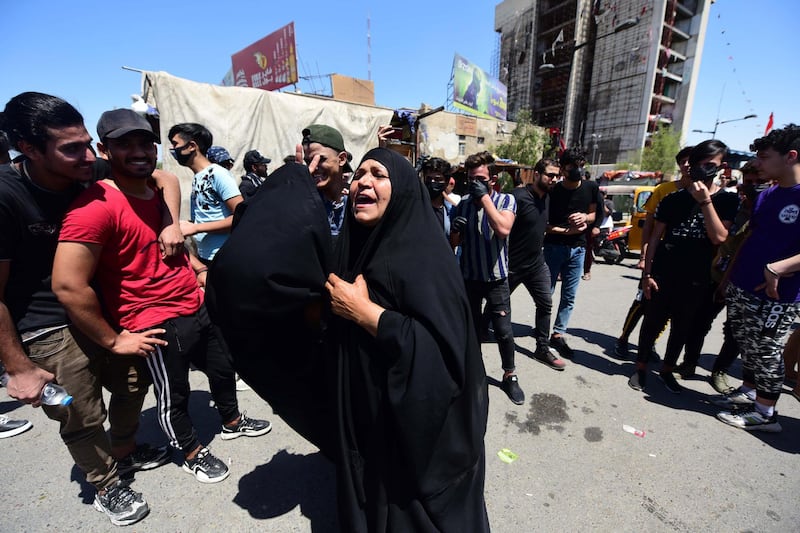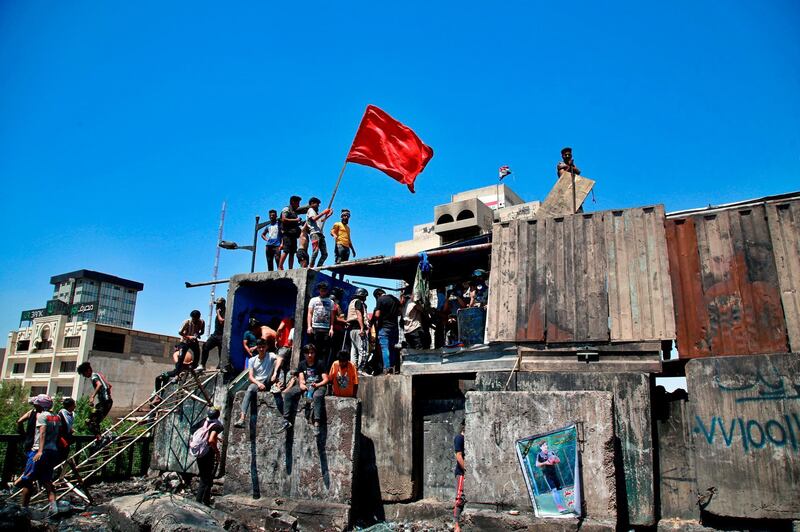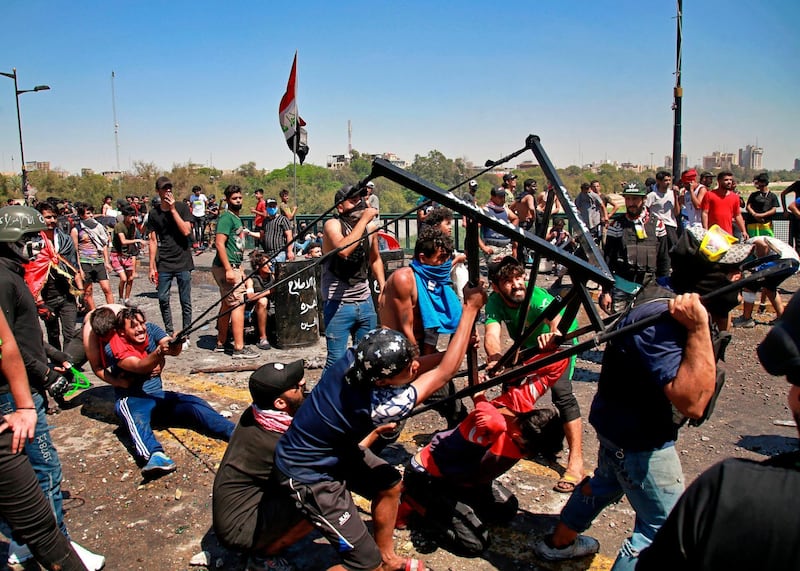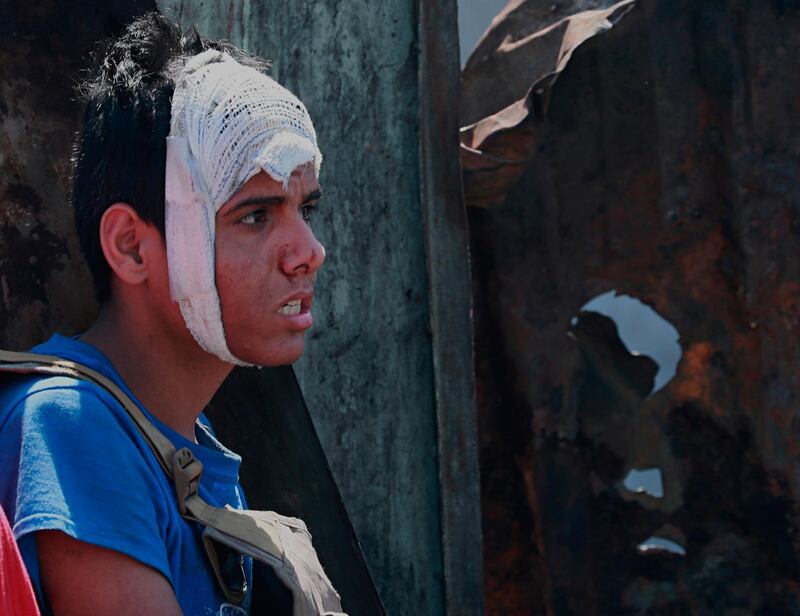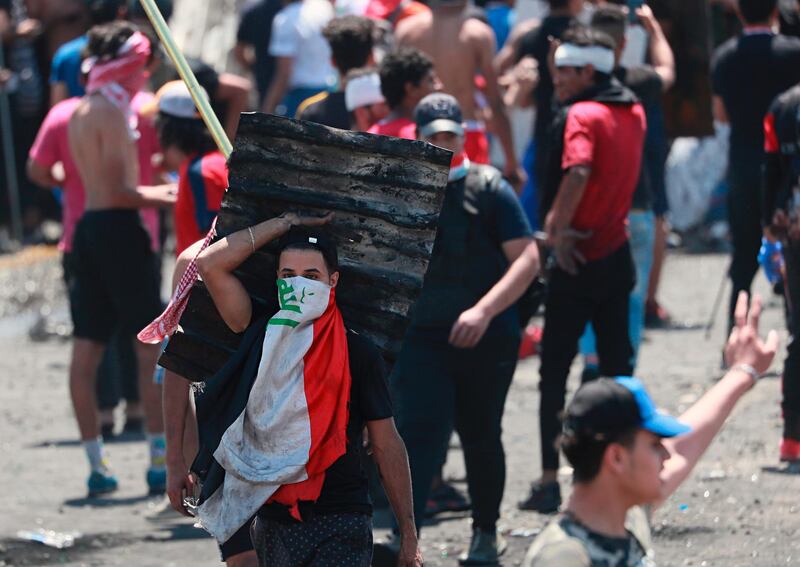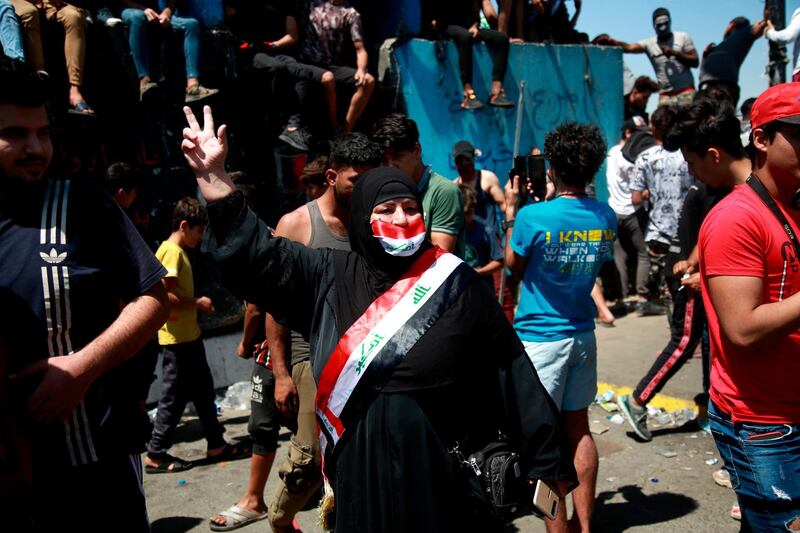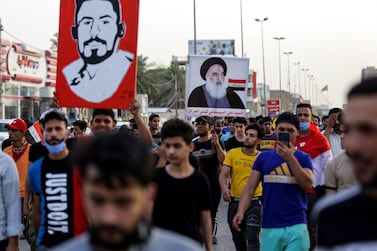The US-Iraqi strategic Dialogue presents a “once in a decade opportunity” that will open a new chapter for both sides to discuss their future relations, experts say.
The talks, set to commence virtually on Thursday, come in a turbulent period in US-Iraq relations caused in part by Iran-backed militia attacks on US troops stationed in Iraq.
As well as US counter-attacks inside Iraq that killed Iranian General Qassem Suliemani and Iraqi militia leader Abu Mahdi Al Muhandis.
"The talks will set the shift of relations from a military to a trade and economic cooperation between the two states, it follows a series of attacks on US troops based in the country," a senior Iraqi official told The National.
In 2011, Washington withdrew its forces from Iraq, eight years after leading the invasion that toppled dictator Saddam Hussein and set off a bitter sectarian conflict.
Thousands of American soldiers were redeployed to the country from 2014 onwards as part of a coalition battling ISIS.
But various members of the Iraqi parliament have contested their presence in the country after the killing of Sulaimani on Iraqi soil.
They voted in parliament to expel all foreign soldiers from Iraqi territory in mid-January, but the decision was never ratified and implemented.
The dialogue will define the future military presence for the US in Iraq and the political nature of their relations. Up until a few years ago there was no clear strategy on what the US relationship should look like, Baghdad-based political analyst, Sajad Jiyad told The National.
“Initially it was set up to help Iraq counter ISIS and from that it wasn’t very clear what the US intended to do, including how much effort they planned to put in the relationship and what they want out of Iraq,” Mr Jiyad said.
The dialogue intends to put all aspects of the US-Iraqi relations on the table and will see a series of meetings between high level officials and diplomats from both sides.
For the first time they will have a frank exchange of “what each country wants from the other and what they are willing to do to make that happen,” Mr Jiyad said.
Their current relationship, and the US presence in the country, is based on a strategic framework agreement signed in 2008. It called for close defence co-operation to deter threats to Iraqi “sovereignty, security and territorial integrity".
It was Washington who pushed for the dialogue to take place after the troubles it faced with the previous government of prime minister Adel Abdul Mahdi in 2018, Renad Mansour, senior research fellow and Iraq expert at Chatham House, said.
"The US was arguing that the prime minister's office should be held accountable for the attacks on their troops. Senior officials in Washington did not just blame their enemies such as Kataib Hezbollah for the attacks but the premier's office for being complicit in it," Mr Mansour told The National.
But with the emergence of the new government of Mustafa Al Kadhimi “there’s a change in that mood and atmosphere, it’s less charged politically,” Mr Mansour said.
“The talks will be more of a refresher on their relationship, they will talk not just about politics, and the US-Iran dynamic but more on trade and economy,” Mr Mansour said.
Mr Al Kadhimi has good relations with Washington and it looks like he wants this dialogue to be taken seriously and wants to gain as much out of the relationship as possible, Mr Jiyad said.
“This might mean talking about the future of American troops and their actions in Iraq and the US might have a direct robust discussion of troop protection and the Iran issue,” he said.
Mr Jiyad described this move as a “healthy” step.
Iraq is key to the US strategy of containing the expansion and power of Iran’s current regime.
“No country in the Gulf region is currently more important to the US in trying to check the designs of Iran’s Supreme Leader, hardline revolutionaries, and the IRGC,” said a report by the Washington Institute published last month.
Iraq’s new government is facing a daunting list of economic, security, and political reform challenges at the same time that low oil prices have drastically reduced state revenues and the healthcare system is ill-equipped for the coronavirus pandemic.
“If the US can help Iraq’s leaders build up a stable and strong Iraq, this would be a critical addition to deterring Iranian ambitions and Iranian military pressure on the Gulf region,” said the report.
A rocket landed inside Baghdad airport near to where US forces are based in the latest attack on American forces in the country.
Monday night’s rocket fire was the 29th such attack against American troops or diplomats since October. None of the attacks have been claimed, but Washington accuses armed groups backed by Iran.
Despite the attacks on US soldiers, Iraq’s newly-appointed Foreign Minister Fuad Hussein, said that talks will be “"an important station that will frame the priorities in Baghdad and Washington."
The negotiations can potentially take months, if they carry on until after US elections in November then a new direction could be taken if a new president is elected, Mr Jiyad said.
“The potential is there to present a new chapter but we are not sure how competent both sides are,” he said.
